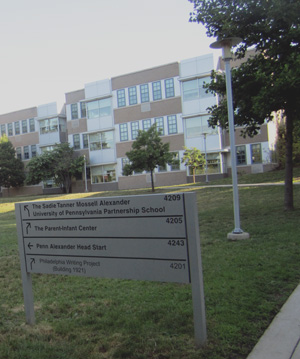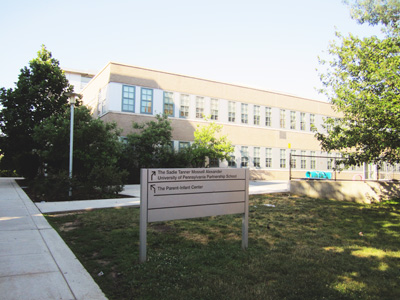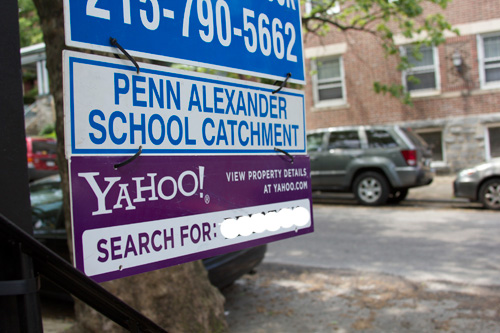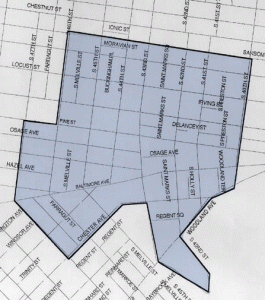 The Spruce Hill Community Association (SHCA), an integral player in the formation of the Penn Alexander School more than 10 years ago, agreed last night to draft a statement calling on the school to admit every child in first grade and above who lives in the school’s catchment area.
The Spruce Hill Community Association (SHCA), an integral player in the formation of the Penn Alexander School more than 10 years ago, agreed last night to draft a statement calling on the school to admit every child in first grade and above who lives in the school’s catchment area.
Parents new to the neighborhood and those with young children have been dismayed about the refusal of the school to admit many children even though they live within the school’s coveted catchment area. Several people who attended last night’s SHCA board meeting, as well as one association board member, shared stories about children who were not admitted and their frustration about not knowing how to proceed for the coming school year.
School and district officials have said that the school’s lower grades are at capacity, prompting them to advise many parents, even those with siblings already attending the school, to investigate other options. The SHCA board agreed that the policy was unjust.
Longtime Spruce Hill Community Association board member Barry Grossbach said it is the association’s obligation to pressure the school to accept any child who lives inside the catchment boundaries.
“I think we need to be very clear that kids who live within the catchment area need to go to the school,” Grossbach said. “This was the expectation that we had when the school was formed and that is the expectation we have now.”
Board members hope that the statement will help prompt a more open discussion about the enrollment policy, which so far is a mystery to most parents.
Most parents have tolerated a kindergarten enrollment cap because kindergarten is not required in Pennsylvania. But now the cap is being applied to the lower grades. Registration for those grades begins August 15 and many parents new to the neighborhood are unsure if their children will be admitted.
West Philly resident Monica Calkins spoke at the meeting on behalf of a new community organization confronting the enrollment issue at the school. The group, Advocates for Great Elementary Education (AGREE), officially formed last month after several parents commiserated about the lack of information coming from the school.
Like many parents who live in the Penn Alexander catchment, Calkins wants answers.
“We have a lot of questions,” she said.
Some of issues the group hopes to have clarified:
• Extent of the overcrowding at the school.
• The process for determining an enrollment cap.
• Penn’s position on the overcrowding issue.
• Whether other measures, such as temporary classrooms, have been considered.
A key question that many are asking is whether the influx of students to the school is a temporary surge in the population that might be relieved by temporary classroom space similar to what is being done at some crowded schools in Northeast Philadelphia.
AGREE also echoes many residents’ fears about “downstream effects” of the enrollment cap, including a drop in real estate prices.
Property sales, which surged after the school was built, have reportedly already begun to reflect the confusion and anxiety over admission to the school.
Realtor Melani Lamond told SHCA board members last night that if the enrollment policy is not cleared up soon real estate sales will likely drop further and prospective homebuyers will look to buy elsewhere.
“I guarantee you this will be a one-time problem if there is no guarantee that their kids will get into the school,” said Lamond.
School officials have advised some parents to investigate other neighborhood schools, including Henry C. Lea School (4700 Locust St.), which has seen a surge in community interest in recent months.
Many parents who live inside the catchment have said that they would consider Lea, but first want a definitive answer to whether their child might have a chance to get into Penn Alexander.












Recent Comments